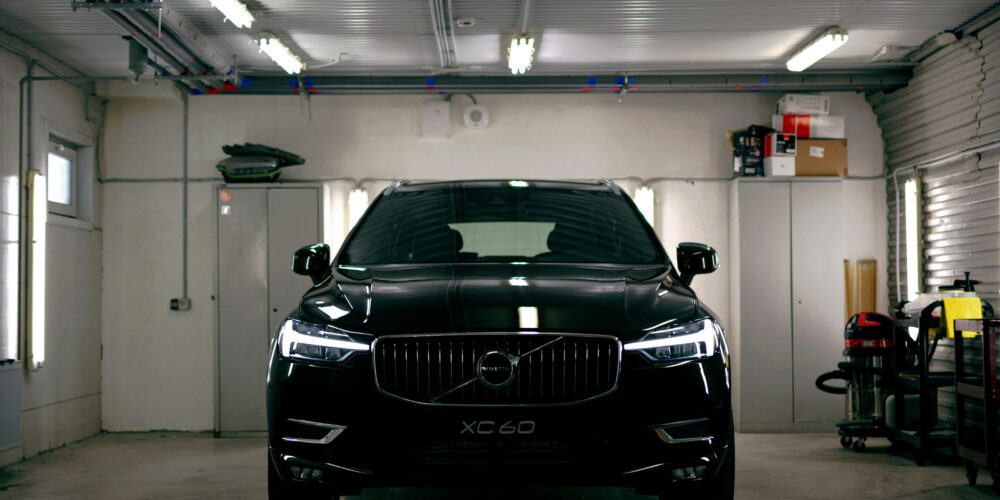Regular vehicle maintenance is crucial for keeping your car running smoothly and safely. One of the most comprehensive types of maintenance is a full service, which goes beyond routine checks and oil changes. Whether you’re preparing for a long trip or just keeping your car in peak condition, understanding what a full service includes can help you stay on top of essential maintenance tasks.
What Is a Full Service?
A full service is a thorough check of your vehicle’s systems, components, and fluids, typically carried out once a year or every 12,000 miles—whichever comes first. It’s more in-depth than a basic interim service and aims to address potential issues before they become significant problems.
A full service often includes more than 50 checks and adjustments, depending on the vehicle and the specific service package. Here’s a breakdown of the key elements usually covered in a full service:
1. Engine Oil and Oil Filter Replacement
Replacing the engine oil and filter is one of the most critical parts of any service. Clean oil ensures your engine runs smoothly by reducing friction and heat. Over time, oil becomes contaminated and less effective, so changing it regularly is essential to prevent engine wear.
2. Air Filter Replacement
The air filter prevents debris from entering the engine. A clogged or dirty air filter can reduce your car’s performance and fuel efficiency. During a full service, the air filter is inspected and replaced if necessary.
3. Fuel Filter (for Diesel Vehicles)
For diesel vehicles, the fuel filter may also be checked and replaced to ensure your engine is getting clean fuel and to avoid blockages.
4. Pollen or Cabin Filter Check
The cabin filter, which keeps the air inside your car fresh by filtering out pollutants, may be replaced if it’s clogged or dirty.
5. Brakes
A comprehensive brake check includes inspecting brake pads, discs, and fluid levels. Ensuring your brakes are in good condition is essential for your safety on the road.
6. Tyres
Your tyres will be checked for wear and tear, pressure, and tread depth. Adequate tread is essential for maintaining grip, especially in wet conditions. Uneven wear could indicate an alignment issue that might need to be addressed.
7. Suspension and Steering
The suspension and steering components are inspected for wear and damage. Any loose or worn-out parts are identified and may be replaced to ensure your car handles properly and rides smoothly.
8. Exhaust System
The exhaust system is examined for any signs of corrosion, damage, or leaks that could affect performance or emissions.
9. Lights, Indicators, and Electrics
All external and internal lights, indicators, and electrical systems are tested to ensure everything is functioning correctly. This includes headlights, brake lights, fog lights, and even your car’s horn.
10. Fluid Levels
All essential fluids are checked and topped up if necessary, including:
- Coolant: Keeps your engine from overheating.
- Brake Fluid: Vital for maintaining braking performance.
- Power Steering Fluid: Ensures smooth steering.
- Transmission Fluid: Helps lubricate and cool the transmission.
- Windscreen Washer Fluid: Ensures your windscreen stays clean for visibility.
11. Battery Health Check
The battery is tested to ensure it is charging correctly and can hold sufficient charge. If your battery is nearing the end of its life, you may be advised to replace it.
12. Drive Belts and Timing Belt Check
Drive belts, including the timing belt, are inspected for wear and damage. If there are signs of wear or indicators that it is time to replace the timing belt in particular, you will likely be advised that this should happen.
13. Diagnostic Check
In many modern cars, a diagnostic tool is used to check the car’s electronic systems. This check can identify any potential issues with sensors, emissions, or other electronic components.
14. Wipers and Windscreen
The condition of your windscreen wipers is assessed, and the windscreen is inspected for any chips or cracks that could impair visibility or worsen over time.
15. Exhaust Emissions Check
Depending on the garage, a full service may include an exhaust emissions test to ensure your car meets environmental standards.
Why Is a Full Service Important?
A full service keeps your car running efficiently and can help detect any issues before they become more serious, and expensive. Skipping services or delaying them can lead to more significant problems down the line, including decreased fuel efficiency, poor performance, or even breakdowns.
Regular servicing also helps maintain the value of your car. A well-maintained car is more likely to pass its MOT and retain a higher resale value.
When Should You Book a Full Service?
Most manufacturers recommend booking a full service once a year or every 12,000 miles, whichever comes first. However, if you frequently drive in demanding conditions (such as stop-start traffic, long commutes, or harsh weather), you may need more frequent checks.
A full service is one of the best ways to keep your car in top shape. From engine oil changes to brake checks, it covers a wide range of important components to ensure your vehicle is safe, efficient, and reliable. If your car is due for a full service, book an appointment with our expert mechanics today to give your car the care it deserves.

